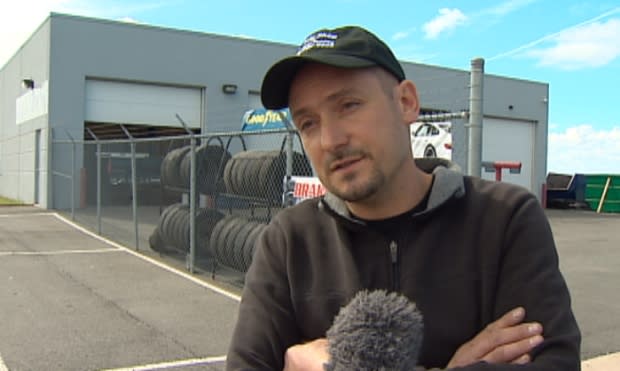Judge dismisses jury in garage death trial, 1st prosecution under Westray law

A jury was dismissed in a Nova Scotia courtroom Thursday in a starling development in the criminal negligence trial of a Halifax man charged under the so-called Westray law.
The trial of Elie Hoyeck in Nova Scotia Supreme Court will continue with a judge alone.
The sudden switch follows a question from a juror and the activity of one of the Crown attorneys in the case.
The juror who started it all submitted a written question to the judge. She wanted to know why she and some of the other jurors had had their LinkedIn profiles searched by Crown prosecutor Alex Keaveny.
She questioned whether the search was appropriate and asked why it was only done for some jurors.
Keaveny apologized to the court. He says his only intention was to find out more about some jurors who had been vague about their backgrounds on the forms they were required to fill out.
He said he did a simple Google search and the first thing that popped up was the LinkedIn profiles.
LinkedIn informs account holders when their profile is examined and who's doing it, which is how the juror found out what Keaveny had done.
Judge said optics were bad
Justice James Chipman accepted Keaveny's explanation that it was inadvertent. But the judge said the optics for trial fairness are bad and that it taints the process.
Chipman reluctantly agreed with the joint Crown and defence recommendation to dismiss the jurors.
Hoyeck is charged with criminal negligence causing death for the September 2013 fire at his auto-repair business in Cole Harbour, that claimed the life of mechanic Peter Kempton.
Kempton was using an acetylene torch to remove the gas tank from a derelict minivan when the vehicle ignited.
Hoyeck has pleaded not guilty.
On Wednesday, Joe Spence, who was working alongside Kempton the day of the fire, told the jury that there was little safety oversight and several non-functional fire extinguishers at the auto-repair business.
Hoyeck disputes severity of Kempton's injuries
Once the jury was dismissed, the court heard recorded interviews that Hoyeck made police and investigators in the aftermath of the fire.
He told them that he thought Kempton might have been drunk and suggested they take a blood sample.
He also suggested Kempton was nearly blind and accident prone.
Hoyeck stressed repeatedly that Kempton was a licensed mechanic and that he was not. He said as a licensed mechanic, Kempton should have known better than to go under a vehicle and work near the gas tank with a torch.
In his interviews, Hoyeck said he wasn't at the business when Kempton started working under the vehicle, but he returned in time to see it burst into flames.
He said he rushed over to pull Kempton out of the fire and tore off his burning clothes.
In the interviews, Hoyeck disputes the suggestion Kempton died from the burns he suffered, saying he was fine when he was taken to hospital.
Hoyeck suggested to police that one of Kempton's relatives might have killed him in hospital to get his money.
The Westray Bill was introduced after the 1992 Westray mine disaster in Plymouth, N.S., that killed 26 miners. The Crown was unable to successfully prosecute mine managers under the existing legislation.
The Westray Bill amended the Criminal Code to make it easier for authorities to hold business owners responsible for deaths or injuries to employees hurt on the job.
The CBC's Blair Rhodes live blogged from court.

